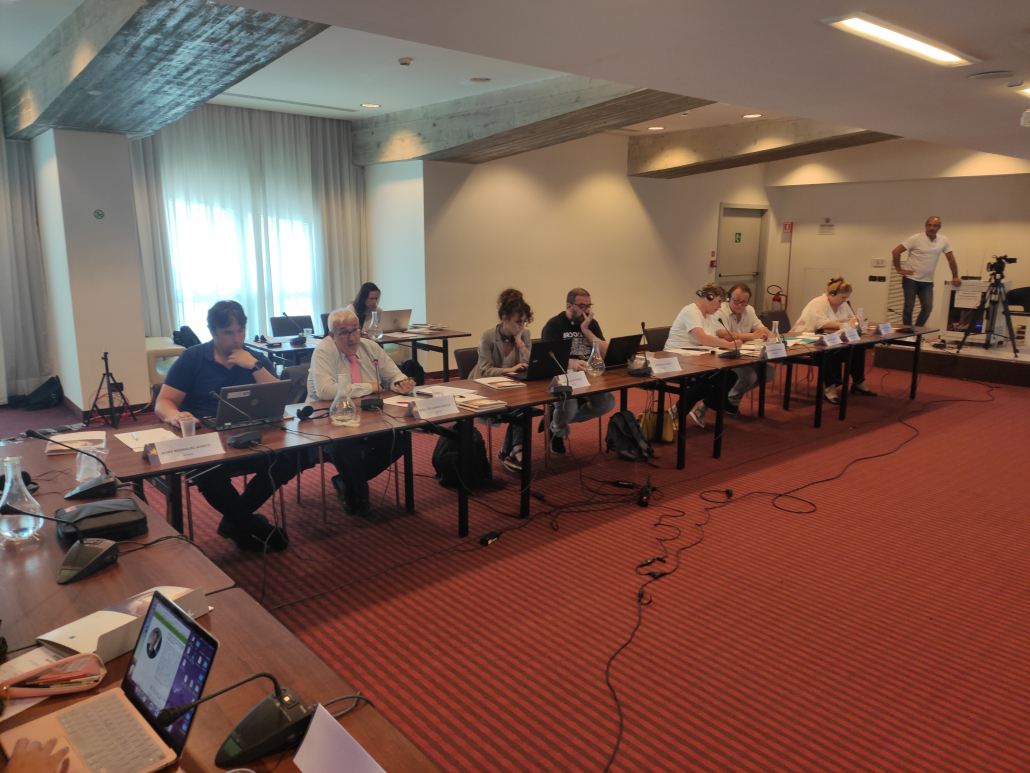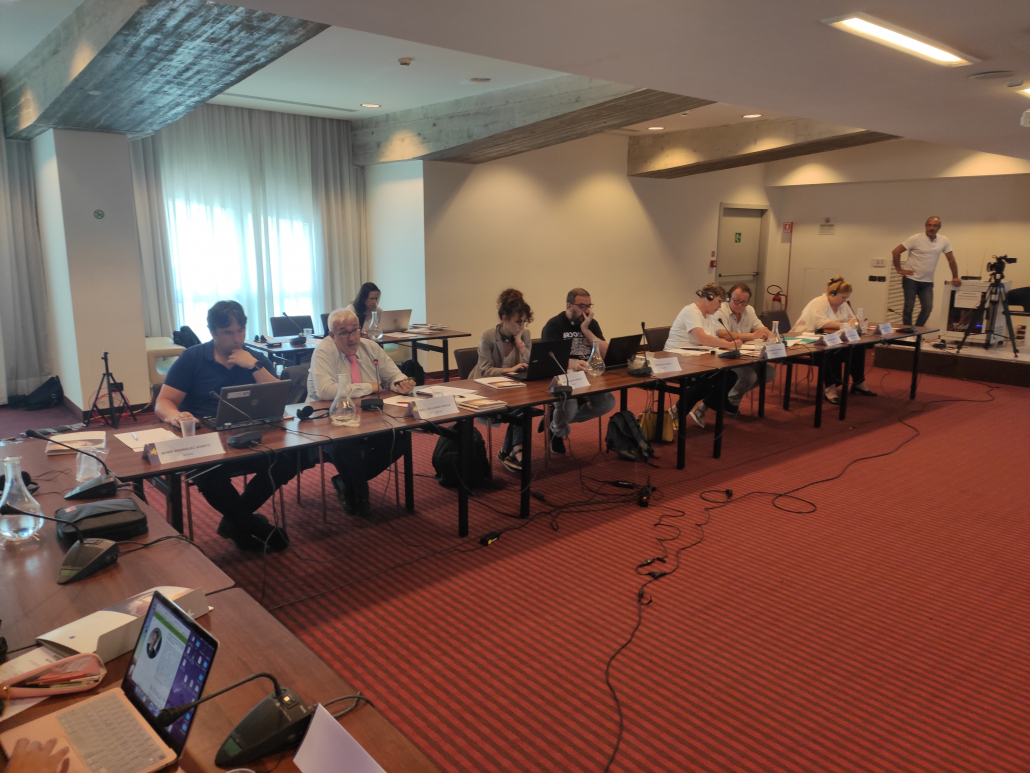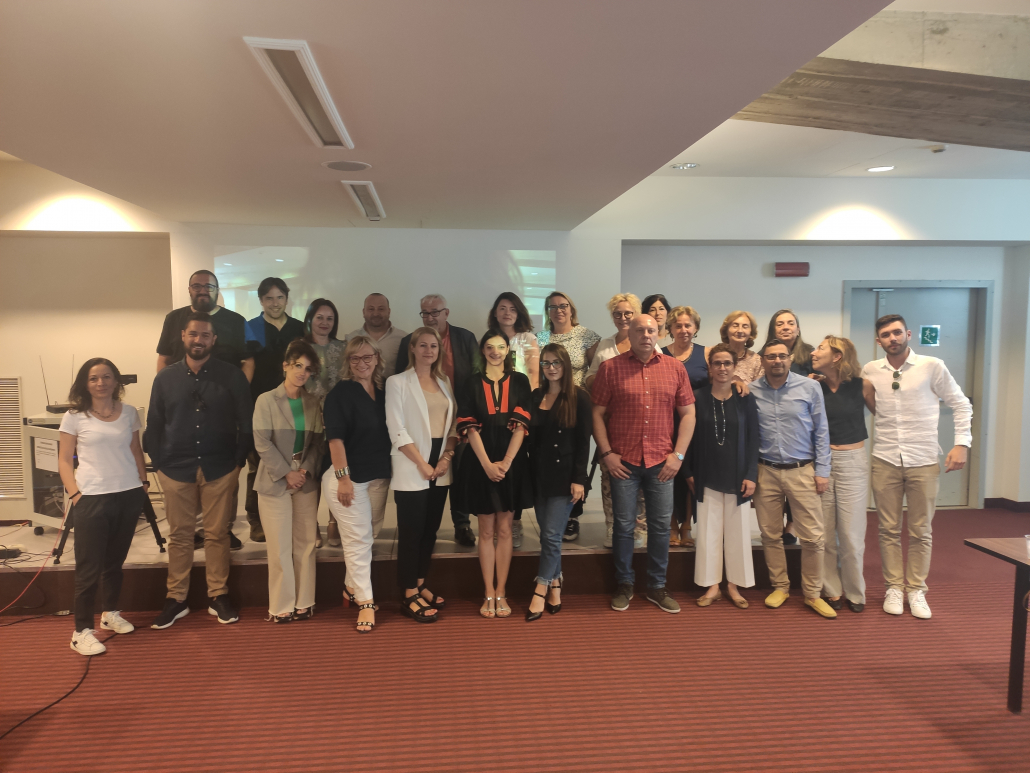06-07.06.2022 CAPACITY BUILDING SEMINAR
On 06-07/06/2022, the meeting of the European project “Effective tackling of the economic crisis and the role of workers and social partners in public sector” was held in person. Participants from the following organizations attended: CSIT Professional Union (Spain),Federazione Autonoma del Sindicati del Transporti. FAST (Italy), Federacja Przedsiębiorców Polskich (Poland), Sindikat zaposlenih u zdravstvu i socijalnoj zaštiti Srbije, (Serbia), National Federation of Commerce, Services, Customs and Tourism. CL Podkrepa (Bulgaria) and Lietuvos Profesine Sajunga. LPF “Solidarumas” Lithuania).
On the first day of the meeting, the expert and representative of CSIT Ángel Lozano Lares with the representative of FAST welcomed. The project expert presented the structure of the meetings and the topics to be developed in the two days. Subsequently, he oversaw the presentation of the online publications of the Comparative Report, of the Action Plan, and of the Study Program. Next, he exposed normative and technical development of the European Union in the matter of Digital Transition. Throughout the day he exposed Priorities of the EU in Digitization: The Recovery and Resilience Mechanisms and the Marci Strategy on Safety and Health at work 2021-2027, as well as Training and Digitization: Qualifications, digital skills and lifelong learning.
On the second day of the meeting, the speaker began by recalling the instruments for the participation of workers established in Directive 2002/14 to focus on those relating to collective bargaining and social dialogue. On this topic, interventions were made by Italy, Serbia and Spain, on the need to review the role of trade unions in the framework of the digital transition and the concern that should be shown in the face of possible job losses or, at least, before its future transformation, which made it necessary to enable new training channels.
Secondly, there is a debate moderated by expert-moderator Angel Lozano, on the incidence of collective bargaining in the digitization processes and the emergence of new forms of employment. There were brief interventions by the project partners, which led to aspects more related to the ecological transition in their countries, more consolidated and closer than the digital transition on which it was not yet possible to advance specific situations.
Finally, the speaker spoke about the prevention of occupational risks during the COVID-19 pandemic and the participation of workers and employers in mitigating its effects.




